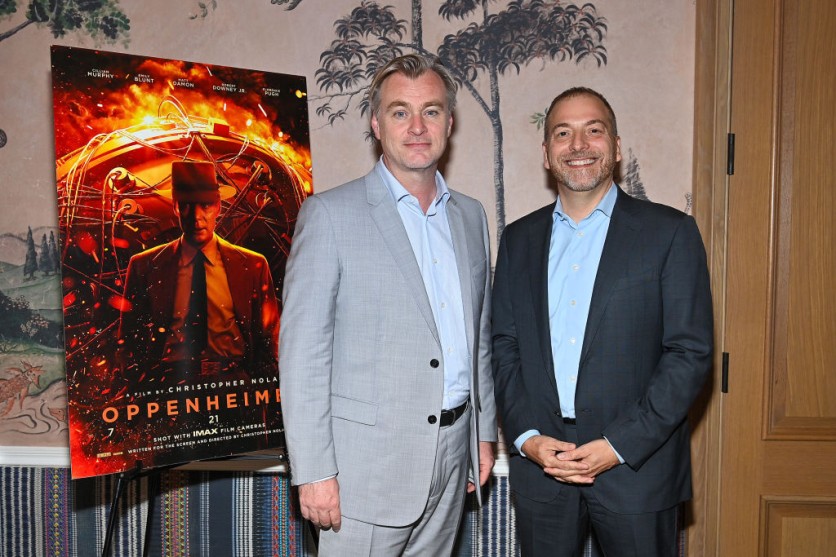"Oppenheimer" director Christopher Nolan has issued a word of caution about the rapid development of artificial intelligence (AI).
Drawing parallels between his dramatic feature on the development of the atomic bomb and the potential dangers of AI, Nolan expressed concerns about the lack of understanding and accountability surrounding the technology, Variety reported.

Christopher Nolan on AI: 'Terrifying Possibility'
Christopher Nolan drew attention to the alarming trend of companies using terms like "algorithm" without a full understanding of their implications. He expressed concern about the lack of accountability and responsibility regarding AI's consequences.
The director found it terrifying that AI systems could be involved in defensive infrastructure and nuclear weapon control. He emphasized the need to hold individuals responsible for their actions when utilizing such powerful tools.
"Applied to AI, that's a terrifying possibility. Terrifying," Nolan said in a press conference following a preview screening of "Oppenheimer" in New York.
"Not least because, AI systems will go into defensive infrastructure ultimately. They'll be in charge of nuclear weapons. To say that that is a separate entity from the person wielding, programming, putting that AI to use, then we're doomed. It has to be about accountability. We have to hold people accountable for what they do with the tools that they have," he added.
The "Oppenheimer" film, with Cillian Murphy taking the lead role, retells the story of J. Robert Oppenheimer, a renowned theoretical physicist who played a pivotal role in the development of the atomic bomb during World War II.
The movie delves into the historical events and challenges faced by Oppenheimer as he led the Manhattan Project, a top-secret U.S. military initiative to create the world's first atomic weapon.
The film portrays Oppenheimer's journey from being chosen by U.S. military officials to head the project to developing and testing the atomic bomb, which ultimately changed the course of history.
Set against the backdrop of World War II, the narrative explores the ethical dilemmas, scientific breakthroughs, and personal struggles faced by Oppenheimer and his team of scientists as they grapple with their creation's immense power and devastating potential.
Read Also : Computer Scientists Develop 'De-Stijl' Tool With Adobe to Help People Use Color Better in Graphic Design
'Oppenheimer Moment'
When asked about the researchers' perspective on AI, Nolan noted that many leading researchers in the field consider this to be their "Oppenheimer moment."
The director said the researchers are looking back at history to understand the responsibilities of scientists who develop new technologies with potentially unintended consequences.
However, Nolan acknowledged that finding easy answers to these questions is challenging. Still, he believes that exploring Oppenheimer's story can shed light on where responsibilities lie and encourage people to reflect on accountability.
As "Oppenheimer" hits theaters on July 21, Nolan hopes that the conversation about the responsibilities and consequences of AI will continue. The film could serve as a reminder of the significant impact of new technologies and the importance of taking a breath to consider the accountability of those wielding them.
Related Article : Margaret Atwood, James Patterson Among Thousands of Writers Demanding Compensation From AI Companies

ⓒ 2026 TECHTIMES.com All rights reserved. Do not reproduce without permission.




